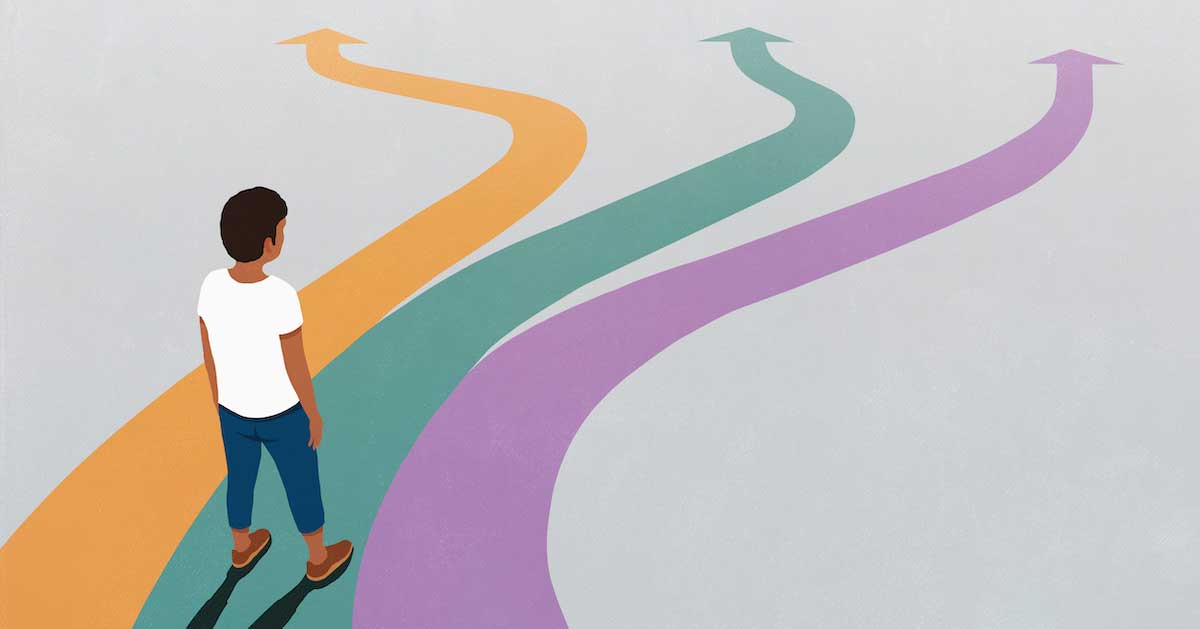Canadian Survivor Michelle Furgiuele and awareness advocate Tania Ferlin with MPAHT (Meeting Professionals Against Human Trafficking) will lead attendees through “Survivor and MPAHT Co-Present: What Event Professionals Can Do to Help Stop Human Trafficking,” 8-9 a.m. on June 18 at MPI’s 2019 World Education Congress (WEC) in Toronto. Sponsored by Delta Air Lines. Learn more at mpi.org/wec19.
For many meeting professionals, 2018 was a year of raised awareness about human trafficking.
And they have found World Day Against Trafficking in Persons, held annually on July 30, to be important in their fight against the scourge. In 2013, the General Assembly of the United Nations adopted a resolution to designate the day “to raise awareness of the situation of victims of human trafficking and the awareness of their rights.”
Meeting Professionals Against Human Trafficking (MPAHT), a group made up primarily of meeting planners in Toronto, marked July 30, 2018, by becoming a signatory to The Code. The Code, which stands for “The Code of Conduct for the Protection of Children from Sexual Exploitation in Travel and Tourism,” is an initiative to provide awareness, support and tools to fight the sexual exploitation of children.
World Day fights a scourge that has resulted in an estimated 40.3 million people, many of whom are children, being trapped, trafficked and exploited. And it has led to concrete action. The designation of World Day was followed by the adoption of a Sustainable Development Agenda in 2015, which embraced goals and targets in fighting human trafficking. The goals prioritized ending trafficking and violence against children, the need for measures against human trafficking and elimination of violence against and exploitation of women and girls.
Each year’s World Day has a particular focus. In 2018, the focus, chosen by the United Nations Office of Drugs and Crime (UNODC), was “responding to the trafficking of children and young people.” The UN noted that one-third of the victims are children.
Among the actions the UN recommended were downloading an information brochure on the work of the UNODC, donating to the Voluntary Trust Fund for Victims of Human Trafficking and promoting World Day on social media.
Many governments, organizations and groups also used the day to raise awareness of efforts they are working on. The European Union, for example, highlighted the EU Strategy towards the Eradication of Trafficking in Human Beings and to promote EU Anti-Trafficking Day, held every year on Oct. 18. It also highlighted a set of proposed priorities to increase the EU’s efforts that were set forth in December 2017. The priorities underline the need to untangle the links between human trafficking and migrant smuggling, terrorism, corruption, drug trafficking, cyber crime and online sexual exploitation.
Anti-trafficking group ECPAT-USA, which has helped raise awareness in the meeting industry, sent its executive director, Carol Smolenski, to talk with Nasdaq’s global head of sustainability in a Nasdaq Live recorded video conversation that touched on child trafficking and the UN’s Agenda for Sustainable Development.
The collective efforts are important, says MPAHT founder Sandy Biback, CMP Emeritus, CMM, because “it really shows how big things are and how out of control a lot of it is and how many things are intertwined with it—poor living conditions, migration, immigration and [in the U.S.] the horrors of separating children from their parents.”
As she noted, “The statistics don’t tell the real story. A lot of people don’t report it, for obvious reasons.”
Groups such as MPAHT have been doing energetic outreach to educate members of the meeting and hospitality industry on signs of human trafficking on their own premises and what to do about it.
“We’ve chosen to get as many hotels in our area on board as we can,” Biback says.
One key step any meeting professional can take is loading the Traffickam app from traffickam.org and start taking photos of the hotel rooms where he or she stays. These are added to a global database so that law enforcement can identify where trafficking victims, seen in online advertisements, are being held.
It is also essential for hotels to make sure that every employee is trained to recognize the signs of human trafficking.
“You have to keep repeating it,” Biback says. “You don’t do it once. We know a lot of bellmen and concierges are being bought off. The more you train and talk about it, the less they’ll be encouraged.”
Planners can also inquire in RFPs if hotels have anti-trafficking awareness programs in place, she says. MPAHT is working with a partner on creating a clause that can be inserted into contracts.
Grassroots efforts can also be powerful, Biback notes. One effort that has been successful for MPAHT is the “awareness breakfast.”
The U.S. Department of State’s 2018 Trafficking in Persons Report called for multi-stakeholder cooperation between national, regional and local governments and between law enforcement, service providers and other key actors.
The report included both good news and bad. Many countries still remain on a list the U.S. Department of State compiled of those not meeting minimum standards set in the Trafficking Victims Protection Act of 2000—such as prohibiting “severe” forms of trafficking and punishing traffickers—and not making significant efforts to meet the minimum standards.
As the anti-trafficking organization ECPAT-USA noted in an analysis, “Africa, which has been cited in previous reports for profound difficulties in both labor and sex trafficking, saw the greatest improvement. More than a quarter of the nations that were reported to have improved status in the trafficking report were found in Africa. Ghana, in particular, was singled out, and a representative program in that country received a ‘trafficking heroes’ award.”
However, ECPAT said it was “a critical oversight” that the report did not mention the need for the education of children about the dangers of human trafficking through decentralized and localized programs. Although the departments of Justice, Homeland Security, State and Transportation have gotten involved in fighting human trafficking, ECPAT called the U.S. Department of Education “woefully absent.”
Fortunately, education has taken top priority within the meeting industry.
“It is imperative that everyone look at what they can do,” Biback says.







